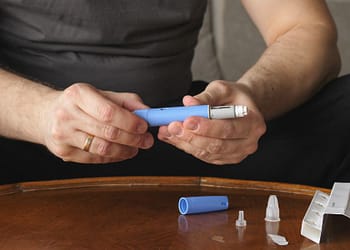Spain commemorates ten years of commitment in the fight against antibiotic resistance, one of the greatest threats to public health globally. On the occasion of the European Day of the Prudent Use of Antibiotics, the Ministry of Health, in collaboration with the Spanish Agency for Medicines and Health Products (AEMPS), has organised a day to reflect on the progress made and the challenges ahead. During the event, Spain committed to reducing antibiotic consumption by 27% between 2019 and 2030.
This effort includes both the community and hospital settings and is part of the European Union's strategy to promote the prudent use of antimicrobials.
Antibiotic resistance causes 4.95 million associated deaths each year worldwide, according to UN estimatesThis problem not only threatens human lives, but also negatively impacts health systems, animal production, the environment and the global economy.
During the event, opened by the director of AEMPS, María Jesús Lamas, and closed by the Secretary of State for Health, Javier Padilla, together with the Director General of Public Health, Pedro Gullón, the importance of a joint strategy was highlighted.
Padilla acknowledged the progress made in the last decade, but stressed that much remains to be done. “There is greater awareness of the problem, but the threat remains an urgent reality. It is crucial not only reduce the amount of antibiotics consumed, but also improve their quality and evaluate the impact on sepsis rates”, he said.
Spain's specific goals against antibiotic resistance
Spain has adopted concrete measures to meet the objectives set out in the European Union Council Recommendation on Antimicrobial Resistance, including:
- Reducing antibiotic consumption:The country seeks to reduce the defined daily doses per 1,000 inhabitants by 27% between 2019 and 2030.
- Increased use of access group antibiotics (AWaRe): Increase the percentage of consumption of this type of medication until reaching 65%.
- Control of sepsis caused by resistant bacteria: Reduce the incidence of serious infections by pathogens such as Staphylococcus aureus methicillin-resistant, Escherichia coli resistant to third-generation cephalosporins and Klebsiella pneumoniae resistant to carbapenems in a 10%, 10% and 4% respectively.
The 'One Health' strategy as a central pillar
The comprehensive health approach known as 'One Health', which connects human, animal and environmental health, is key to addressing antibiotic resistance. This strategy seeks to encourage behavioural changes in both the prescription and consumption of antibiotics. “It is essential to improve social perception of the problem and work together to reduce antibiotic consumption in a rational and sustainable way,” concluded Padilla.






